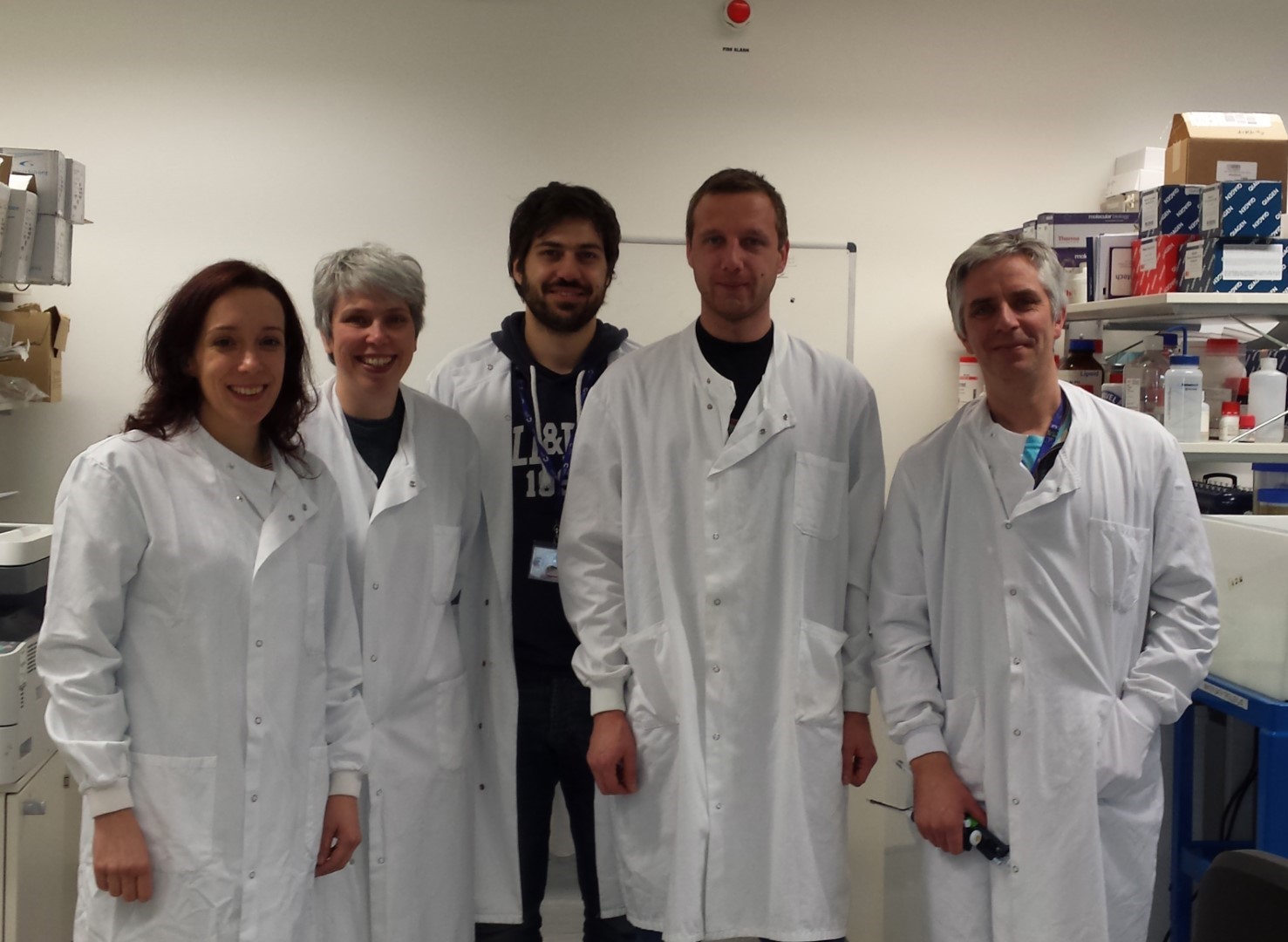Researchers have found that a protein, frequently present in high levels in breast cancer cells, could be targeted with a new type of drug already being tested for other cancers.
Researchers have found that a protein, frequently present in high levels in breast cancer cells, could be targeted with a new type of drug already being tested for other cancers.

New findings
Researchers, funded by Breast Cancer Now in partnership with the Scottish Government’s Chief Scientist Office, have found that a protein called MCL-1 is needed for breast tumours to grow and survive, and could be targeted to treat the disease.
The new study, led by Professor Stephen Tait and Dr Kirsteen Campbell at the University of Glasgow, revealed that MCL-1 helps breast cancer cells survive by hindering cells’ natural ability to die through a process called apoptosis.
A new class of drugs, called BH3 mimetics, can restore this process. These drugs are currently in clinical trials for some blood cancers. While further research is needed, this study presents a strong case to test this emerging new therapy in breast cancer too.
Potential for a new treatment
Apoptosis is a natural process where unwanted, harmful or damaged cells are removed from the body. It plays an important part in growth and development. But cancer cells can evolve to avoid this process.
By targeting MCL-1, BH3 mimetic drugs could be used to restore this process in breast cancer cells and help treat people with breast cancer.
Professor Stephen Tait said: ‘Our study further highlights the importance of MCL-1 protein in breast cancer. Our demonstration that MCL-1 acts in breast cancer by keeping cells alive (as opposed to other MCL-1 functions) is important because drugs that target MCL-1 survival function are now in clinical development.’
The study has also discovered that breast cancer stem cells are especially dependent on MCL-1 for growth and survival. These cells are thought to be responsible for the disease spreading and becoming resistant to treatments.
Understanding the role of MCL-1 in breast cancer
The researchers removed MCL-1 from existing breast tumours in mice and found that it led to the tumours shrinking. This suggests that MCL-1 is critical for the growth and survival of breast cancer.
They then tested whether BH3 mimetic drugs could stop the growth of breast cancer in mice by targeting MCL-1. Researchers observed that these drugs significantly slowed down the growth of tumours. This leads them to believe that with further testing, BH3 mimetic drugs could be used to treat people with breast cancer.
Stephen said: ‘The next steps will be to determine the effectiveness of MCL-1 targeting drugs, that are in clinical development, to treat breast cancer in combination with existing therapies.’
Dr Simon Vincent, Director of Research, Support and Influencing at Breast Cancer Now, added:
‘With around 55,000 women being diagnosed with breast cancer every year in the UK, we urgently need to find new ways to treat people and prevent deaths from this devastating disease. As such, while further research is needed, we hope this study leads to new and effective treatments being available for people affected by breast cancer.’
If you have any concerns about breast cancer, you can speak to our expert nurses on our free Helpline at 0808 800 6000 or by using our confidential Ask Our Nurses service.
Breast Cancer Now thanks all funders of this study for their support.
The study was published in the journal Cell Death and Differentiation.
We can’t let the coronavirus pause progress in breast cancer research. We need your support to catch up on around 230,000 hours of time we’ve lost in the labs.